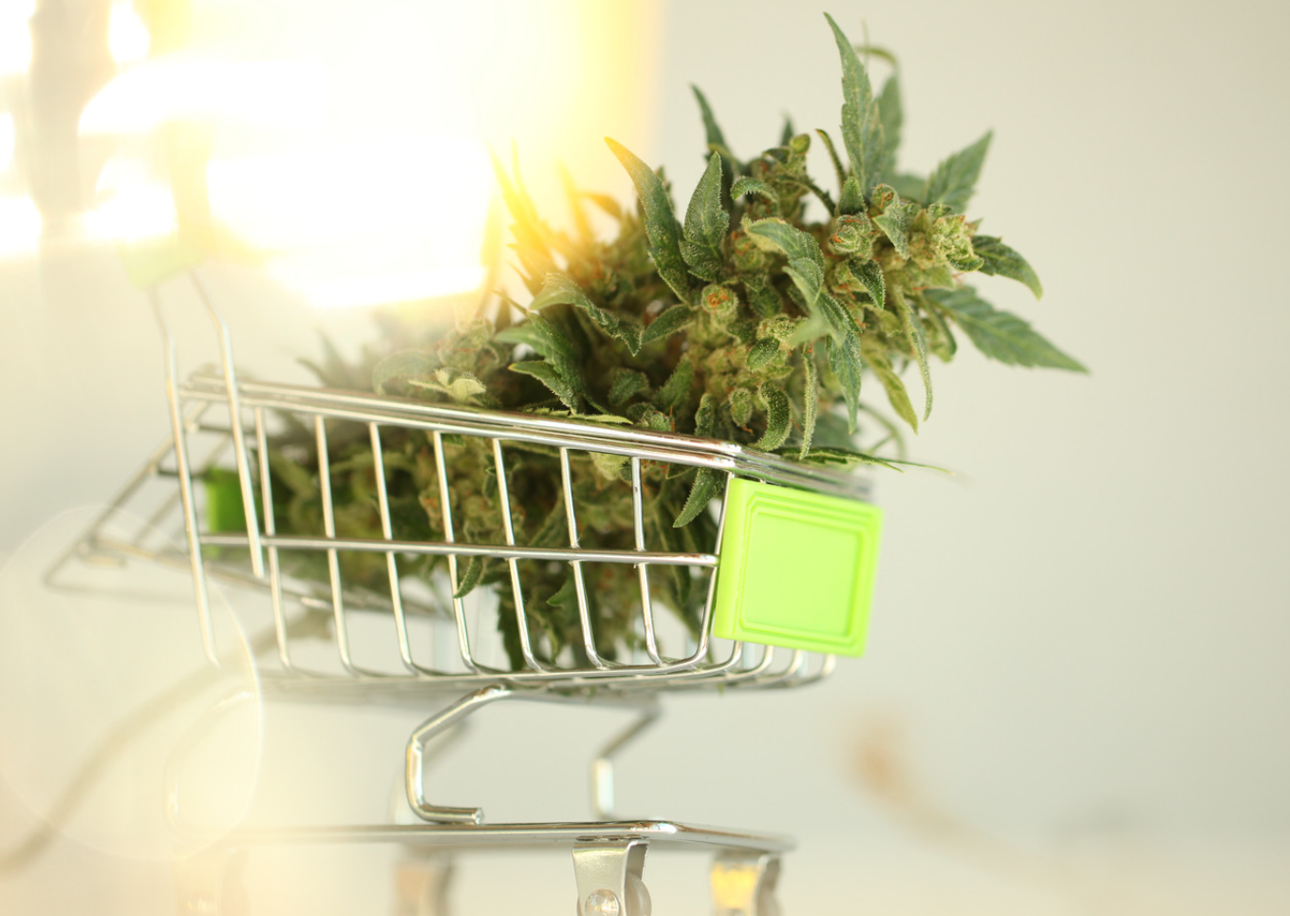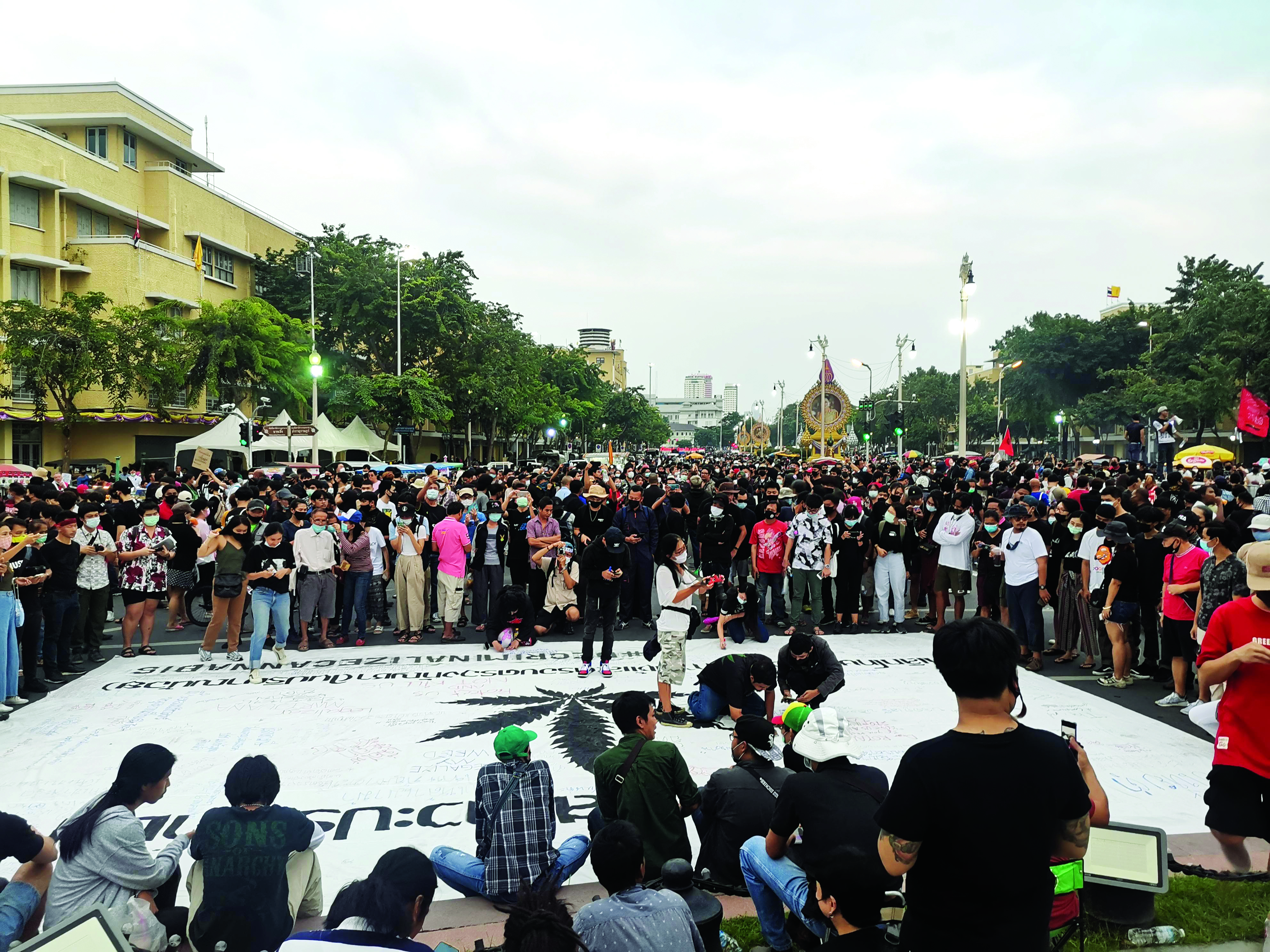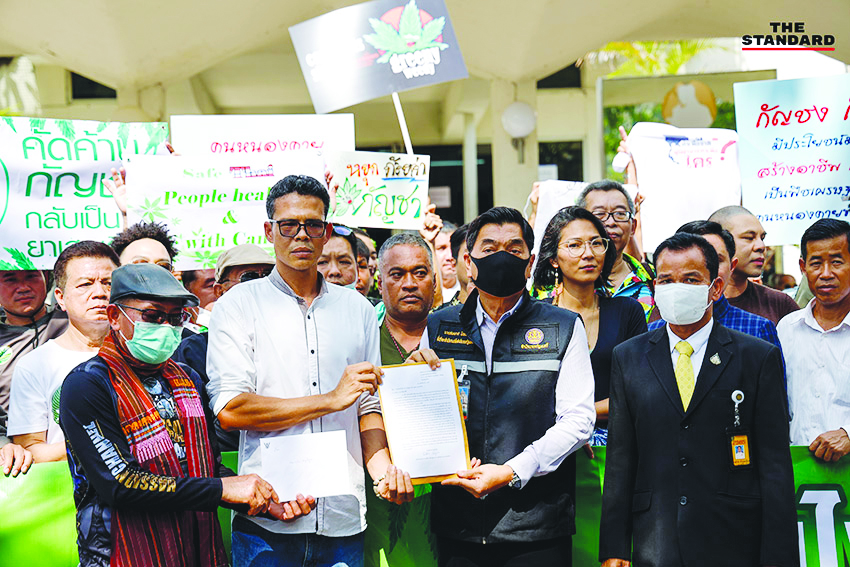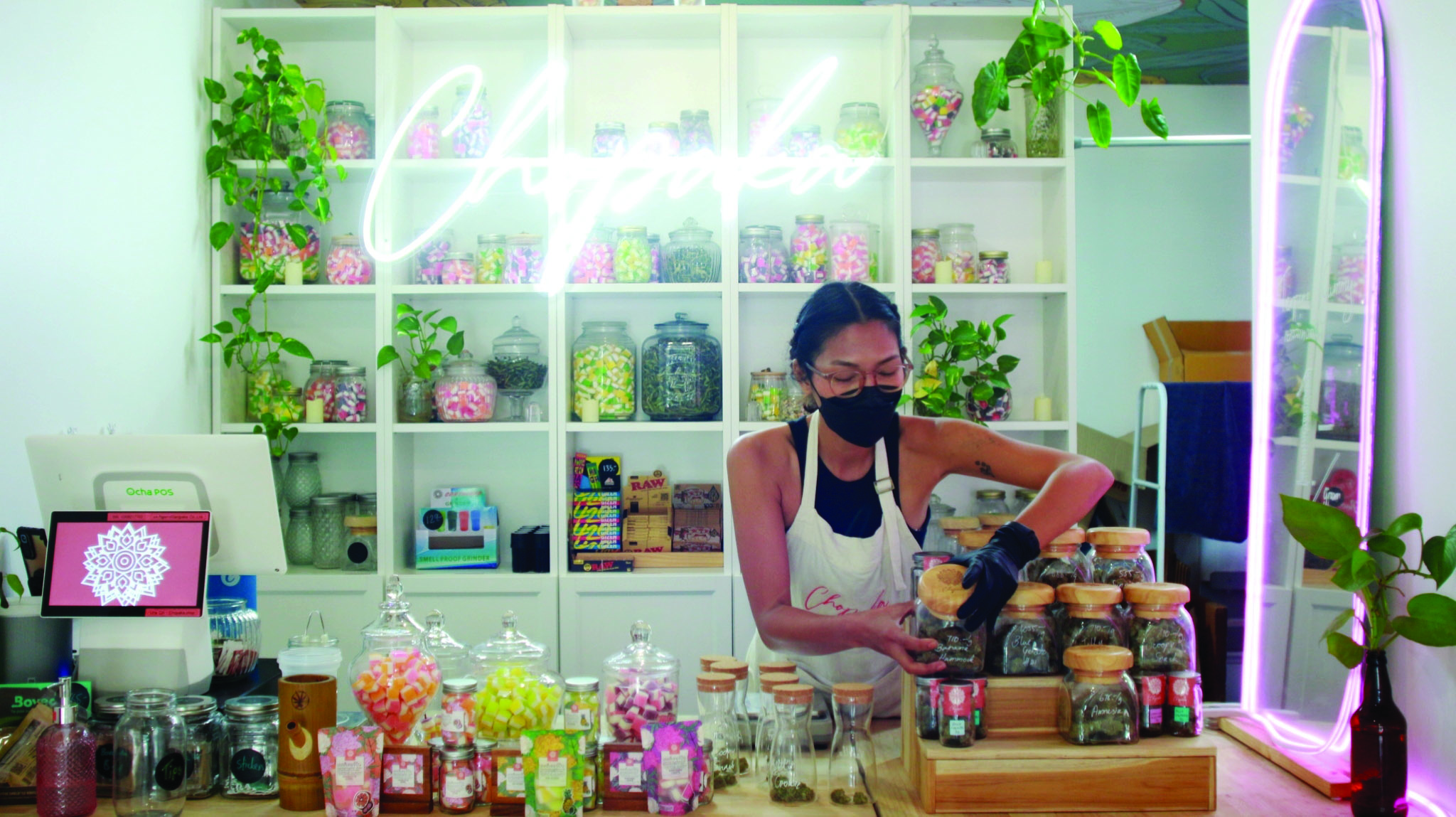The Red Envelope: Billkin and PP Krit’s Take on a Love Story Beyond the Grave
In a cinematic landscape saturated with remakes, reboots and sequels, you might ...

The proliferation of cannabis-based products and dispensaries in Thailand ever since it was delisted from the narcotics control list keep growing unabated, but the transparency on the use of this plant is still debatable. From brownies to pastas to juices, many have capitalised onto these happy edibles more or less for its recreational rather than medicinal properties of which there are proven benefits. But, do we really know the most responsible way to use cannabis? The law is still hazy, with room for interpretation, or misinterpretation as the case may be. Long-time advocate and campaigner for the legalisation of cannabis, Chokwan “Kitty” Chopaka—who also runs her own terpene gummy store—has been vocal about the right use of ganja in Thailand’s burgeoning industry. Kitty previously founded Elevated Estate, a cannabis-focused start-up incubator, and was chief marketing officer at advocacy group Highland Network. Kitty is not just a cannabis expert, but having worked in a law firm, she became familiar with the regulation, agreements, and mediation on this issue. Koktail Magazine spoke to Kitty about the current situation in the market, how progressive views need to be adapted, and what could be a game-changer for the industry.

KM: Have you always been passionate about advocating for this issue? What was your calling?
KT: I stumbled into it, and I’ve yet to be able to get myself out of this hole. I really find it even more fascinating the deeper I fall into it.
I’ve been a long-term user, but I have a very different relationship with cannabis considering my experience throughout the years. It’s no different than coffee or alcohol. When work starts to be more stressful, perspective changes and I start viewing cannabis as a relaxant. Things started changing as I grew older, and when I became a mother, I stopped using it as it could be dangerous.
Particularly with two kids and a family history of early menopause before their 40s, cannabis turned into a healer for me. It changed from being a friend for going out to party with, into someone to stay at home with, to someone to help me heal when I needed to function. I think it just happened to be at the right time and place.

Kitty protesting against cannabis recriminalisation in front of Government House in November 2022.
KM: Ever since the delisting of cannabis, there’s been a spike in interest for cannabis-based products. Do you think there are still some red flags that need to be addressed?
KT: Actually, yes cannabis has been delisted but not decriminalised and that’s why we’re in the space where we’re all confused about what’s going on. The first red flag is imported cannabis. People usually associate imported cannabis with quality. However, it’s actually the opposite because with the regulation that cannabis has gone through in the US, it’s still illegal to export anything out of the US. It means that the hemp that is coming in usually comes through the underground market. This means it doesn’t have to pass, or even go through, lab testing. Normally hemp that doesn’t pass the lab test is supposed to be destroyed. So in fact it’s being grown without any regulation and that’s why it’s all over the place. It’s pretty much a drug trade because people are too enthusiastic and quick into jumping into the industry assuming cannabis is cannabis when it’s not.
So apart from importing cannabis which is illegal and selling it all over town, people are selling things they aren’t supposed to such as cookies, brownies, and hash. Most of it is brushed under the carpet because of the Thai culture of letting it go. It’s also really corruption at its peak. The Thai culture of turning a blind eye to corruption, and the greed to make more money, plays a huge role.
KM: As a cannabis advocate, you’ve spoken about the responsible and safe use of cannabis. Could you please explain how the government could adopt more progressive views about this plant and its powers?
KT: Information and awareness are the key factors. The government can’t address the fact that there is actual use in smoking. There is a Thai instrument used to smoke cannabis, which is just another way of using it. People of all ages are going to use it but you can arm them with knowledge on how to use it safely, what to avoid, and how to look after yourself and others after using it. This is the best weapon to arm kids and adults because it’s about giving them the power to make the best decision. There should be proper materials for each age group.
KM: Any advice on how to break through this industry?
KT: Have a lot of money and be really stupid. Or, don’t have the money, be really stupid but have the passion. For you to be successful in this industry, you would have almost answered the question within your first set of research. It’s so difficult. I may have as much knowledge as possible of cannabis in Thailand, but I still fail. It takes a lot out of you. The only place for you to learn is to begin with it. It takes all the passion out of you. For me, I love it but I don’t know if it’s a business or a thing for advocacy or activism. Sometimes it makes me cry, sometimes it makes me happy as I see people change. It’s merely a love-hate relationship.

Kitty (right) is one of the panelists at an FCCT talk on
KM: For those people who are opening up these establishments, what should they consider when opening a shop? Is it all about making money?
KT: Technically, you need to have a license to sell. It’s just that people don’t follow the rules. People see a shortcut and jump on it. If you’re smart and actually want to make money, you would have been out since last year. I am still here because I want to create an industry.
KM: What could be a game-changer for this industry?
KT: A global decriminalisation, delisting, or amendment because that would mean that the industry exists globally. Right now it’s very localised. Being localised, what works in one location doesn’t work in another. I see there’s a lot of international brands coming in. It’s very difficult for Thailand as we were the original producers but now we are still trying to figure out the culture, the law, the rules and regulations, and social acceptance.
KM: How did Chopaka (gummy cannabis) come about?
KT: I was an cannabis advocate and it was all after the failed Elevated Estate. Because, what happens is when you start from advocacy, you really focus on the people building with the most valuable resources. Everyone encouraged me to share knowledge, bring the standard up, but when it was time for support, no one was ready to open the market or offer resources. So, that failed miserably and I realised I needed to find a way to make money.
I needed to see how to do business without involving cannabis and still make a profit. My products have no THC, no CBD, and are synthetically made so it’s FDA approved. But we really upset a lot of people because our factory is not open to everyone, because no one else can do exactly what we do. It’s there to teach people about cannabis.
Our gummies are more of a product of advocacy than anything else. Of course, we do sell it, and we produced about five tonnes last year. It worked out in our first year going to market as we earned 1.4 million baht which wasn’t bad.

Kitty at her Chopaka terpene gummy store.
KM: What type of customers are your target market?
KT: We do resellers to other shops, from cafes to cannabis stores. We aren’t interested in selling to big guys because I’m not here to help those who already have money make more money.
In general, there are more customers who are women since gummies are women’s snacks and I designed it in a way that would be more appealing to the ladies because I want them to feel that it’s safe.
I’m a true believer that cannabis can help us instead of using a lot of those scary pharmaceutical products that don’t do a good job, make you slow, and stop you from thinking straight. It also helps with menopause and PMS, and all that’s related to women’s productive system. So, maybe that’s where the bigger market is. By making cannabis a bit safer and appealing for the female target group, that’s where we should be heading. Our clientele also includes a lot of LGBTQ+ as it seems like a safe space for them, too. They do come from all over the world, even places where they are not supposed to exist. I’m very strict with IDs because it’s supposed to be a piece of advocacy and more above the law. I even get a lot of elderly people as clients.
KM: What are you currently working on? Anything we can look forward to?
KT: As per my prediction, the first six months of this year is going to be bad because of recession and generally bad global economy. Until one year of legalisation, we are doing a lot of R&D for our products which is essential. During this drought, we’re looking for more plant-based protein like hemp seeds and hemp milk. We will also have Thai cannabis flavoured gummies which will be more for export. More courses and training for people to understand the protocols because as a business owner you need to know how to manage your shop. We also have a coffee line coming up. We figured out how to roast coffee beans with cannabis, just enough to give you a buzz.
KM: Is there anything else you would like to add?
KT: I have a Think Tank to rewrite the cannabis act yet again. I did that last year too, and I’m doing it again. After it’s been drafted, we have to do public hearings in every region of the country. Then we have to find someone who would be on our side to push it to the government.
KM is Koktail Magazine
KT is Chokwan “Kitty” Chopaka
In a cinematic landscape saturated with remakes, reboots and sequels, you might ...
These top 5 barber shops in Bangkok are where gentlemen can elevate ...
Must-have gadgets for kids in the Y2K are, predictably, making a comeback ...
While traditional TV shows are serving us endless boy-meets-girl tales. Thailand has ...
Stay ahead of the curve with these three must-visit new restaurants in ...
See how Kim Steppé’s early passions, family values and entrepreneurial spirit continue ...
Wee use cookies to deliver your best experience on our website. By using our website, you consent to our cookies in accordance with our cookies policy and privacy policy